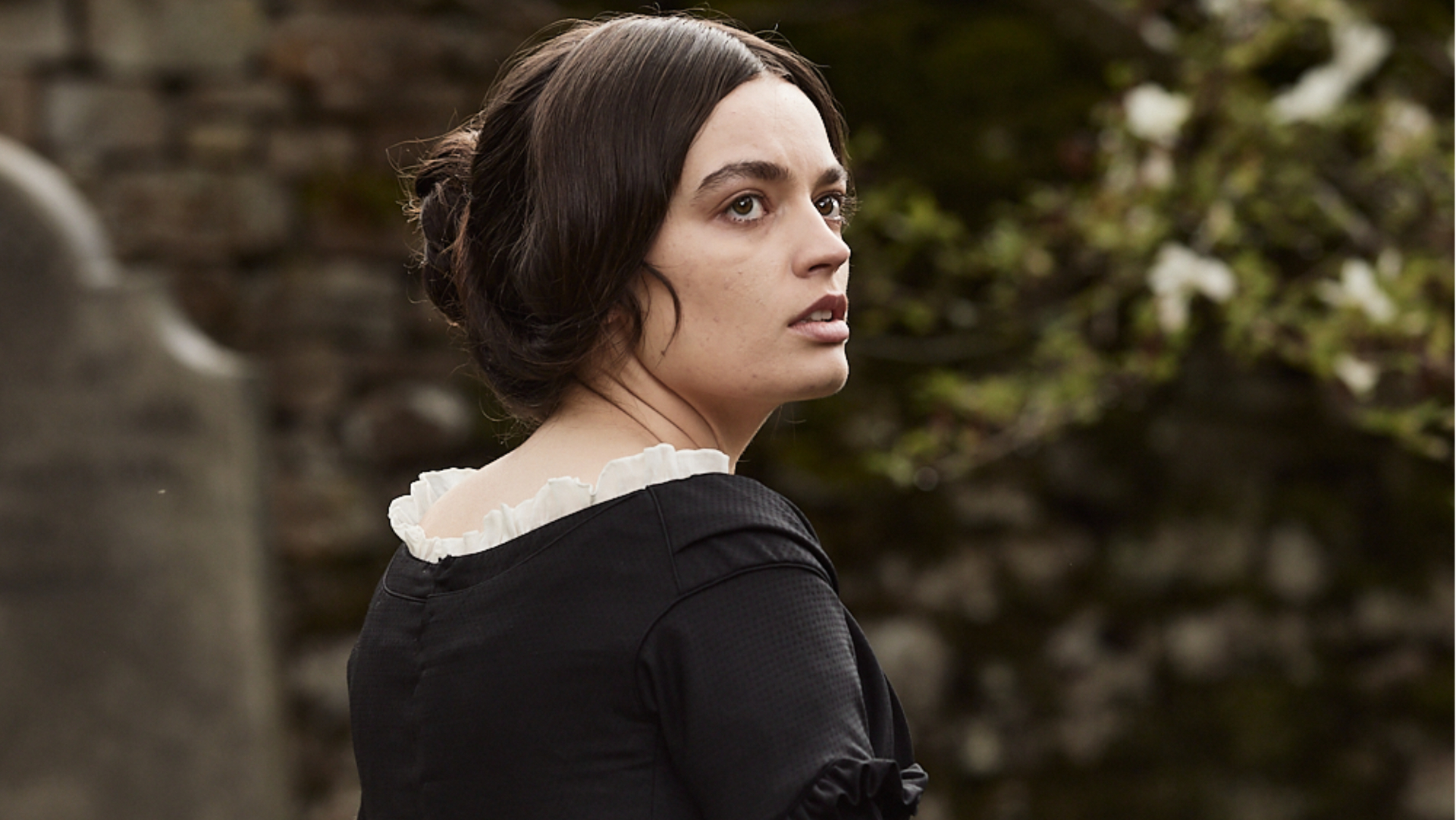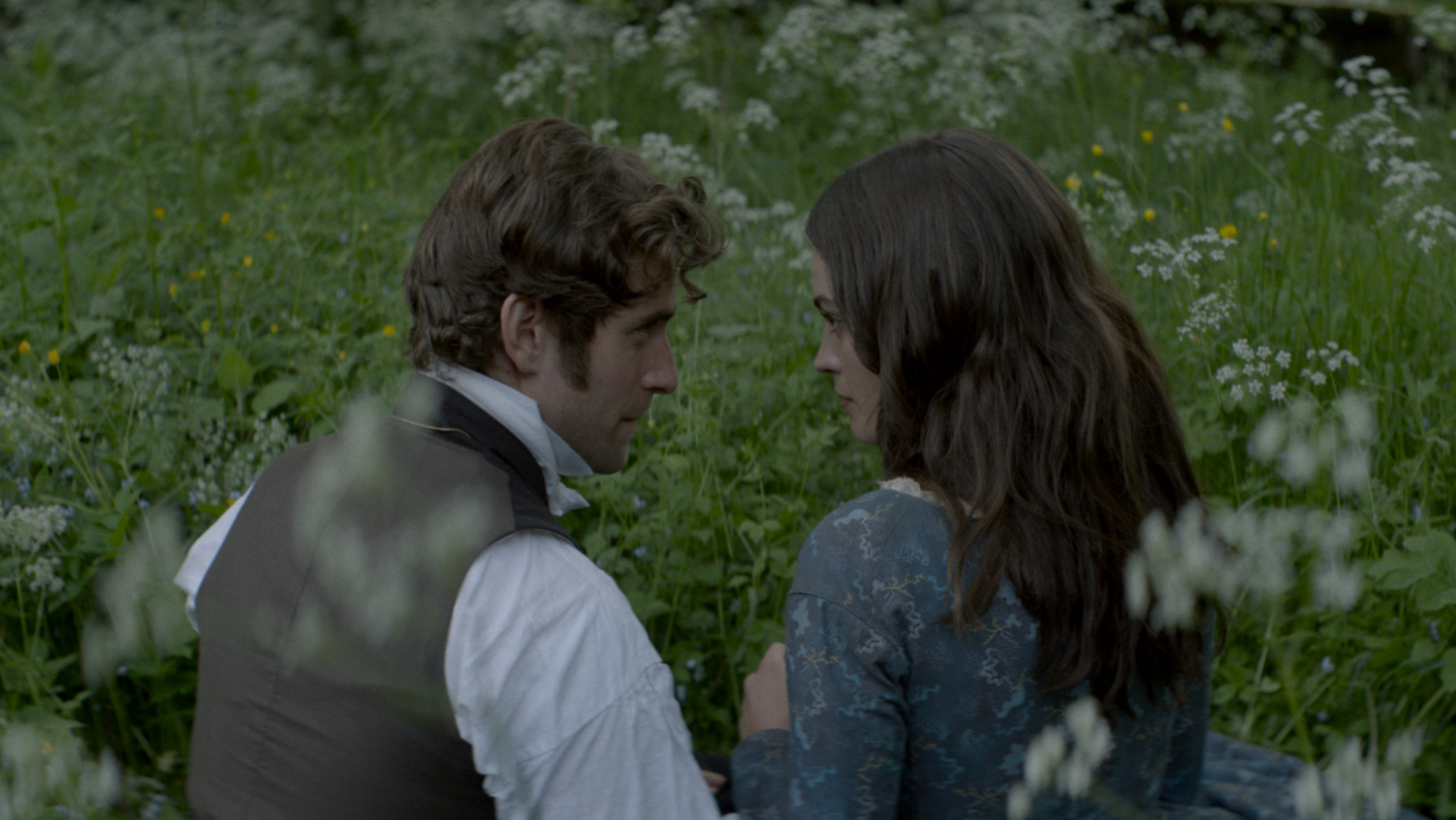Frances O’Connor on making a different kind of biopic with Brontë drama Emily
Total Film gets the lowdown on the first trailer for Emily, starring Emma Mackey, from the movie's director
Frances O'Connor may be best known for her roles in movies like AI: Artificial Intelligence and Mansfield Park, but now the actor has turned her hand to writing and directing. Her feature debut is Emily, a dramatization of the life of Emily Brontë, the author of the 19th Century classic novel Wuthering Heights.
Sex Education's Emma Mackey is playing the titular writer alongside a supporting cast including Fionn Whitehead, Adrian Dunbar, and Gemma Jones. Despite being set in the 1800s, though, O'Connor is adamant that the movie is not your standard period drama – and she says it's not a traditional biopic, either. The movie's first trailer is now live, and we sat down with the writer-director to talk working with Mackey, filming in Yorkshire, and "pissing off" Brontë historians. This interview has been edited for length and clarity.
Total Film: What was it about Emily Brontë's story in particular that made you want to take the jump from acting to writing and directing?
Frances O'Connor: I've always wanted to write and direct something and I've always loved Emily as a character. I read [her] book, Wuthering Heights, and also Jane Eyre, Charlotte [Brontë]'s novel, when I was about 15 and just loved them. I think the thing I really loved is this kind of wildness in it – you really feel the author, I think, in the novel. The thing about Emily is that she died when she was 30. She was an intensely private person. And yet, she created this kind of gargantuan piece of literature that is full of fierce intelligence and humor and atmosphere, so she's a fascinating character. And yet no one's ever made a film about her and we don't know that much about her. So I wanted to tell a story, not a straight biography, but take elements of who she was as inspiration. And then [in] the novel Wuthering Heights, there are themes that I was interested in exploring too, like how do you find your voice as a young woman when you can't see anyone else around you like you?
As you said, there hasn't been a biopic or much made about her previously. Did you feel any pressure being the first in a way or treading new ground with that?
I think you have to take courage in your hands when you're telling a story about a real historical figure, but I was very clear in my mind that I didn't want to do a biopic. I really wanted to speak to the younger audience, because of the themes I'm exploring. And so I didn't really think of it as a period film and I didn't really think of it as a biopic. When you see the film, you understand why there are elements in it that have a supernatural vibe [or] atmosphere. But in terms of pressure, no, I didn't. I know there'll be some people that are pissed off about it, people like Brontë historians will probably say, 'Well, that didn't happen.' But I feel like everything in the film is connected to the truth about who she was as a person.
What made Emma Mackey the perfect actor to play Emily?
Bringing all the latest movie news, features, and reviews to your inbox
Firstly, she also loves Emily Brontë, and she actually said in the past, 'I'd love to play Emily Brontë,' so she's qualified. She's super bright and she's a very passionate person but, at the same time, she's got this fierce intelligence to her the same way that Emily did and she knows who she is in a really strong way. It's just very compelling when you put that on screen. And I think because she wanted to play it in a way that was very personal to her, that's why she's so amazing in the film.
She's great in Sex Education.
She's phenomenal in that. I think people will be surprised when they see her in this because she does play this character that's kind of dominated by her sister and she's introverted and she's finding it hard to grow up, and then she blossoms into this full force by the end of the film. I think she really is phenomenal in the role.

As you were saying earlier, there's not a lot of information about Emily out there, but a lot of what we know about her comes from Charlotte and what Charlotte wrote about her. Did you take that into account? And what kind of role does Charlotte play in the film?
I've read pretty much everything on [the Brontës] and there are some amazing biographies, like Juliet Barker's one is brilliant. Lucasta Miller wrote this [book] called The Brontë Myth that is in itself a fantastic read. So I read around all of that, and then I slightly push the narrative for Charlotte. I think she very much edited Emily, but it was coming from a sense of protection. When you read the early reviews of Wuthering Heights, people were horrified. Somebody said, 'Why this author didn't commit suicide within the first three chapters, I do not know.' It's like, this is a savage piece of work. So I feel like she comes from a good place, but she always curated who Emily was, so I wanted to tell a story where [Emily]'s in the center of the story, and she gets to kind of be the hero of the story. It was quite fun playing with these historical figures and making one of them the protagonist, one of them the antagonist. I think that's quite fun.
What about Anne and Branwell, the other Brontë siblings? How did you approach those dynamics?
Anne in our film is played by Amelia Gething. She's also a huge talent just starting off. She really is the peacemaker, and Anne was also the peacemaker in the Brontë household, definitely. And Branwell, I've made him the only one who really understands [Emily] and the one who sees her for who she is, and accepts her, which helps her be who she's meant to be and helps her like herself, In truth, he was quite a tragic figure, he was the golden boy of the family.
It was quite a tragic family, really, wasn't it? Would you say that the film has a tone of tragedy?
I think the trailer pushes that. There are a lot of really funny moments at the beginning of the film – actually, all the way through the film. We've gone for a tone of the trailer that's more mysterious and more dramatic, which it is as well, but I think there's a lot more humor in it than we're showing.
The Brontës lived in Yorkshire and the trailer's got some really stunning scenery shots in it. Did you film on location, and what was that like?
We mainly shot in a place called Dent, which is in Yorkshire, it's a little bit wilder than the real Haworth now. We did also shoot in Haworth, on the streets of Haworth and near the parsonage, but the moorland there has been flattened a little bit and there's a lot of telephone poles and things. We went up to the virgin Yorkshire countryside. It's so beautiful, so it was very inspiring to shoot up there. And the house that we shot in actually was the inspiration for Emily to write Wuthering Heights. It was rumored that they had a slave there. She took that for inspiration for Heathcliff when she wrote her book, and then we got to shoot this.

Why do you think filmmakers haven't tried to tackle Emily's story before? Why do you think you're the first?
I'm asking myself the same question! I don't know, people tend to love telling stories about the three [sisters], but I felt like it's nice to just take the perspective of one of them. If I ever did another story about them, I'd probably do something about Charlotte, or Charlotte and Emily but from Charlotte's perspective would be fun, but narrative is always better if it goes through the perspective of one person. I think you get a more intense narrative.
But I don't know why. I think because we don't know that much about her, perhaps. And also, I think that it's a kind of thing that a woman might want to make and in the past there haven't been enough female directors to make that happen.
You've acted in TV as well as film, so did you ever consider turning the story into something more episodic? Was it always going to be a film?
I did, actually, when I was writing it. But I feel like the narrative just fit very much into this kind of length. If it wasn't just about Emily, I think you could have done something where it was maybe one person per episode or something, but the narrative feels very filmic. And you've got to support cinema.
You've acted in some period pieces yourself – did you take any of that into the filmmaking experience?
The period stuff I've done, it's been quite naturalistic. Maybe The Importance of Being Earnest is a little bit more heightened. But in a way, it's a coincidence that [Emily]'s a period thing, what I really wanted to do was do a story about Emily because she's such a fascinating character. But in terms of how I approached it, I didn't even think of it as a period piece. I didn't do any crane shots, I kept it very handheld and intimate in keeping the acting very natural. I encouraged all the actors to just forget about it being a period piece and just concentrate on the scenes and what [their] objectives are. That kind of period style acting, when everyone starts acting very proper, I'm pretty sure no one acted like that back then. There might have been moments when they were formal, because they knew the rules, but I wasn't really interested in doing that, because I think you limit the story a little bit. It's a bit of a turn-off for audiences.
Emily is in cinemas on October 14, 2022, following its premiere at Toronto International Film Festival in September. In the meantime, check out our guide to the other upcoming movies that we think should be on your radar.
I’m an Entertainment Writer here at GamesRadar+, covering everything film and TV-related across the Total Film and SFX sections. I help bring you all the latest news and also the occasional feature too. I’ve previously written for publications like HuffPost and i-D after getting my NCTJ Diploma in Multimedia Journalism.


